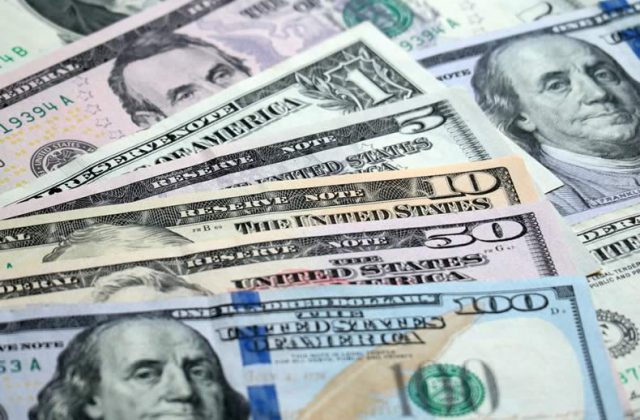
The dollar climbed on Thursday along with the safe-haven yen as signs the U.S. economy was stalling while fiscal stimulus appeared unlikely before the U.S. presidential election kept investors in a risk-off stance.
The dollar strengthened as U.S. equities dropped on the heels of data that showed the labor market recovery is losing steam, while manufacturing activity in New York fell more than anticipated.
Weekly jobless clams rose to 898,000, up 53,000 from the prior week and above the 825,000 estimate, increasing concerns the COVID-19 pandemic was causing lasting damage to the labor market.
The Australian dollar hit a two-week low on Thursday after the head of the central bank hinted at possible monetary easing, while the risk-off sentiment kept the U.S. dollar supported and most other major currencies on the defensive.
After saying a stimulus deal before the Nov. 3 election would be hard, U.S. Treasury Secretary Steven Mnuchin said he will keep trying to reach a deal on coronavirus relief with House Speaker Nancy Pelosi before that date.
“There is still plenty of distance between all parties that have a role to play in an agreement and the assumption the market has that a deal is coming sooner rather than later is being challenged,” said portfolio manager Keith Buchanan at GLOBALT Investments in Atlanta, Georgia.
“That challenge becomes more and more apparent every day that ticks by without a significant progression as far as negotiations are concerned and we are just not seeing it.”
The dollar index rose 0.504% after touching a one-week high of 93.878.
The British pound, lifted on Wednesday by signs of progress in Brexit talks, relinquished those gains on Thursday as concerns about trade talks with Europe resurfaced and London faced tighter coronavirus restrictions.
Sterling was last trading at $1.2893, down 0.91% on the day.
European Union leaders said agreeing to a “fair” new partnership with Britain was “worth every effort” but the bloc would not compromise at any cost and was ready for an abrupt split in trade worth a trillion euros every year.
France has imposed curfews as coronavirus infections rise, and other European Union members were also responding to spiking new cases with fresh restrictions.
Markets fear a new wave of lockdowns could stall the global recovery at a time hopes for U.S. stimulus before the Nov. 3 election are fading, ditching riskier assets such as equities in favor of safe-havens such as the dollar and the yen.
While weaker against the dollar, the Japanese yen strengthened 0.30% versus the euro. Bloomberg reported the European Central Bank “sees little reason” to rush into a new stimulus this month even as coronavirus cases spike and the economy slows.
The euro was down 0.49% to $1.1688 against the greenback.




























